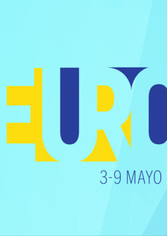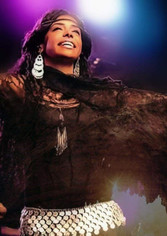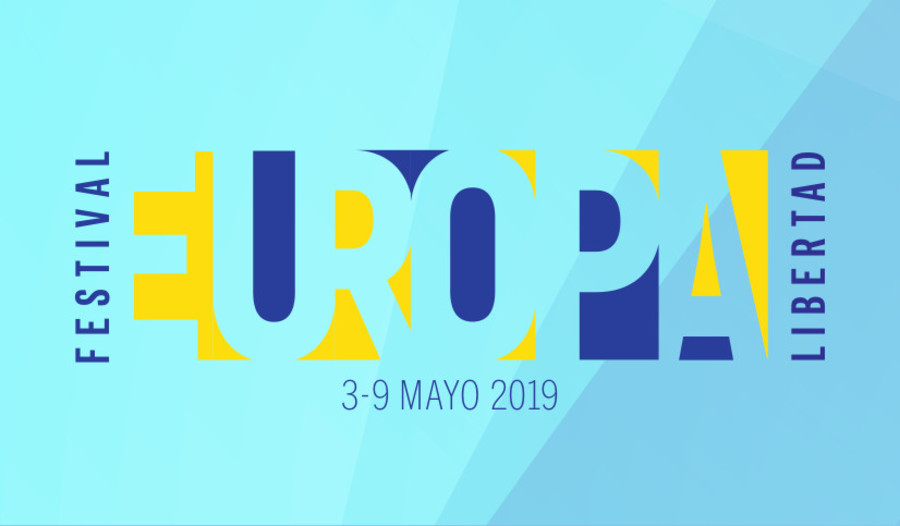Special programs
Index / Activities / Special programs / A Mixed and Plural Europe
A Mixed and Plural Europe
May 09, 2019Check dates, schedules and conditions of entry for each event.
MADRID
Casa Árabe headquarters (at Calle Alcalá, 62).
Check dates, schedules and conditions of entry for each event.
On the occasion of Europe Day, and as part of the “Festival Europa
Libertad,” on Thursday, May 9, Casa Árabe has organized a day of events
titled “A Mixed and Plural Europe,” which includes an international
seminar and a concert.
Contemporary Europe cannot be understood without the cultural mixing that has taken place in migratory movements in recent decades. Today, the mixture of diverse cultures and sensitivities forms part of the customary landscape found in our cities and towns, which is reflected in the increasingly diverse cultural offerings that we are able to enjoy, as well.
On the occasion of Europe Day, Casa Árabe has organized an international seminar and a concert to celebrate that diversity at its Madrid headquarters on Thursday, May 9.
-

International seminar: “A Mixed and Plural Europe”
May 09, 2019From 11:00 a.m. to 4:30 p.m.MADRIDCasa Árabe Auditorium (at Calle Alcalá, 62). From 11:00 a.m. to 4:30 p.m. Free entry until the event’s capacity is reached.In English and Spanish, with simultaneous translation.As part of the Festival Europa Libertad, Casa Árabe has organized this day of events for Thursday, May 9. It will deal with the contributions of both Arab and Islamic culture to Europe, and Europe as a “melting pot” and laboratory for thought.The day’s schedule is as follows:
Thursday, May 9, 2019
11:00 p.m. Welcome speech
Pedro Martínez-Avial, General Director, Casa Árabe
Domènech Ruiz Devesa, member of the Minister’s Cabinet, MAUC
11:15 a.m. Arab and Islamic civilization’s contribution to Europe, past and present
In 1991, the Parliamentary Assembly of the Council of Europe enacted Recommendation 1162, “The Contribution of Islamic Civilization to European Culture”, an initiative promoted by the Western Institute of Islamic Culture [former name of the Islamic Culture Foundation (FUNCI)]. The precedent was a colloquium held earlier in Paris, at the headquarters of UNESCO and the Institut du Monde Arabe, with the cooperation of the Council of Europe, UNESCO and the European Commission (today’s European Union), in order to inform European Parliament Members about the contributions of Islamic civilization to the makeup of European culture.
The goal of this round table discussion is to analyze the current validity of Recommendation 1162 and to examine the different ways in which Islamic civilization’s contribution to Europe can help enrich the concept of Europe at present, as well as helping build European policies in the future.
With the participation of:
Eduardo Manzano Moreno, professor and researcher, Center for Human and Social Sciences, CSIC
Fernando Rodríguez Mediano, scientific researcher, Institute of Languages and Cultures of the Mediterranean (ILC-CCHS), CSIC
Moderated by: Encarna Gutiérrez, Secretary General, Funci
1:15 p.m. Lunch break
3:00 p.m. Europe as a melting pot and laboratory for thought
As a result of the popular uprisings in several Middle Eastern and North African countries in 2011, Europe has witnessed the arrival of many Arab people, including those persecuted for political reasons, religious motives, gender-related matters or sexual orientation, because they are escaping censorship, or the economic crises being endured by many countries in the region. The Arab diasporas in cities like Berlin, London, Paris, Stockholm and Madrid have created new spaces for freedom and creativity. However, at the same time, these places have reached a point of disorientation and malaise caused by the ideological vacuum resulting from fragmented post-modernity and traumatic personal experiences. The experience of the generations which preceded them in the sixties and seventies is quite different, as is that of the immigrants who came after World War Two, pioneers in forging the way to Europe, thus contributing to an increase in its diversity.
With the participation of:
Amro Ali, professor of Sociology, American University of Cairo
Virtudes Téllez Delgado, professor of the Department of Philosophy, Anthropology, Sociology and Aesthetics, University of Castilla-La Mancha
Moderated by: Luis Miguel Bueno Padilla, European External Action Service (EEAS)
-

Concert: “Arab Blues”
May 09, 20198:00 p.m.MADRIDCasa Árabe Garden (at Calle Alcalá, 62). 8:00 p.m. Free entry until the event’s capacity is reached.In Arabic.Singer Hind El Rawy, accompanied by Samir El Turky, Ahmed Selim and Abathar Kmash, is giving this concert as part of the day “A Mixed and Plural Europe,” which Casa Árabe has organized to mark Europe Day. It will be taking place in Madrid on May 9.Contemporary Europe cannot be understood without the cultural mixing that has taken place in migratory flows in recent decades. Today, the mixture of diverse cultures and sensitivities forms part of the customary landscape found in our cities and towns, which is reflected in the increasingly diverse cultural offerings that we are able to enjoy, as well. Arab Blues is a celebration of Europe Day, with the talent of musicians originating in the Arab world but currently forming part of the cultural scene in European cities like Madrid, Nantes, Paris and Munich. With their music and creativity, these musicians, headed by the emblematic Egyptian singer residing in Nantes, Hind El Rawy, give us a closer look at the wealth of the Arab and Islamic cultures with which Europe has shared centuries of history, looking together towards an open, tolerant Europe of the future.
Arab Blues is made up of:
Hind El Rawy (vocals)
Samir El Turky (percussion)
Ahmed Selim (Arabic oud)
Abathar Kmash (keyboard)

